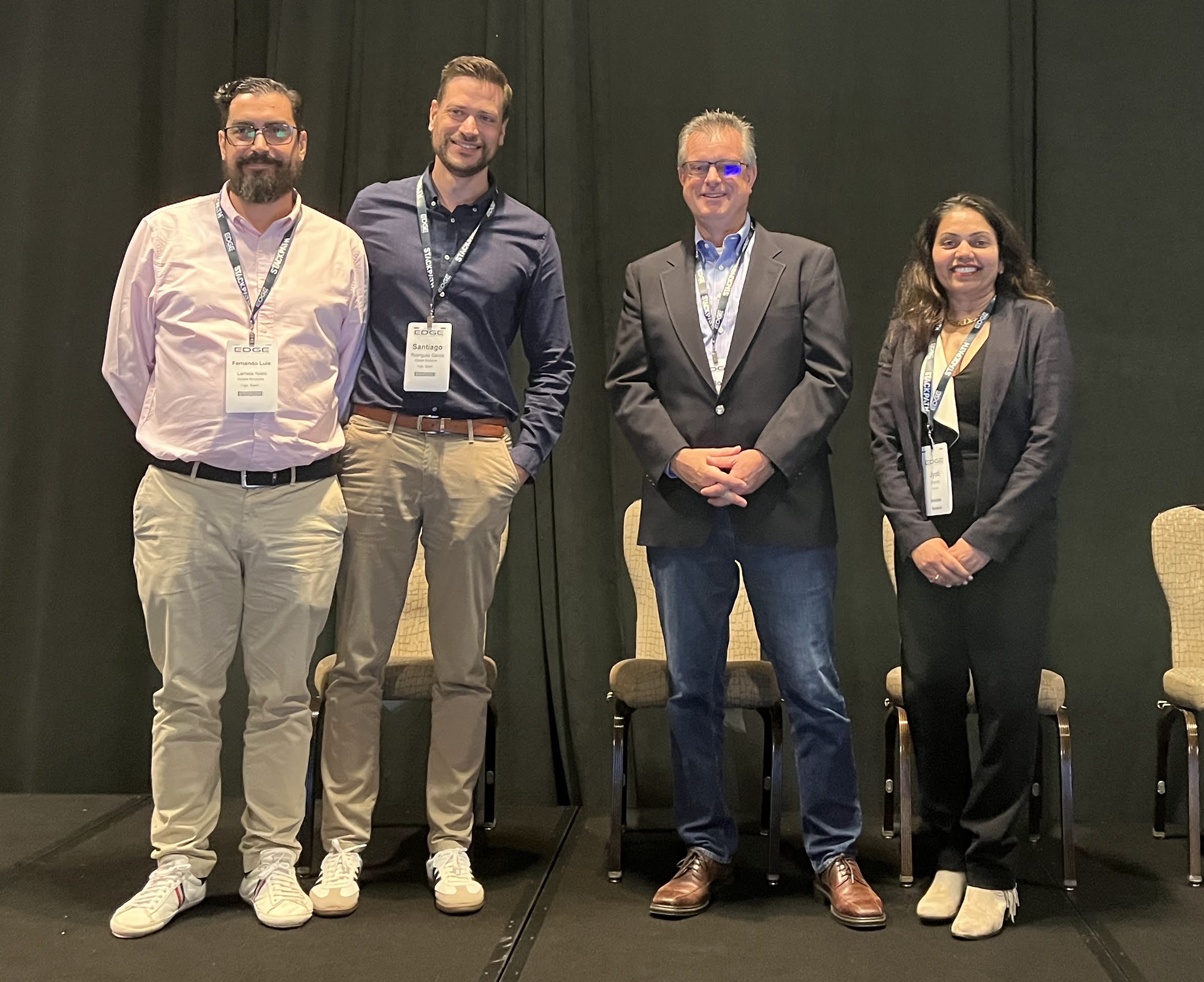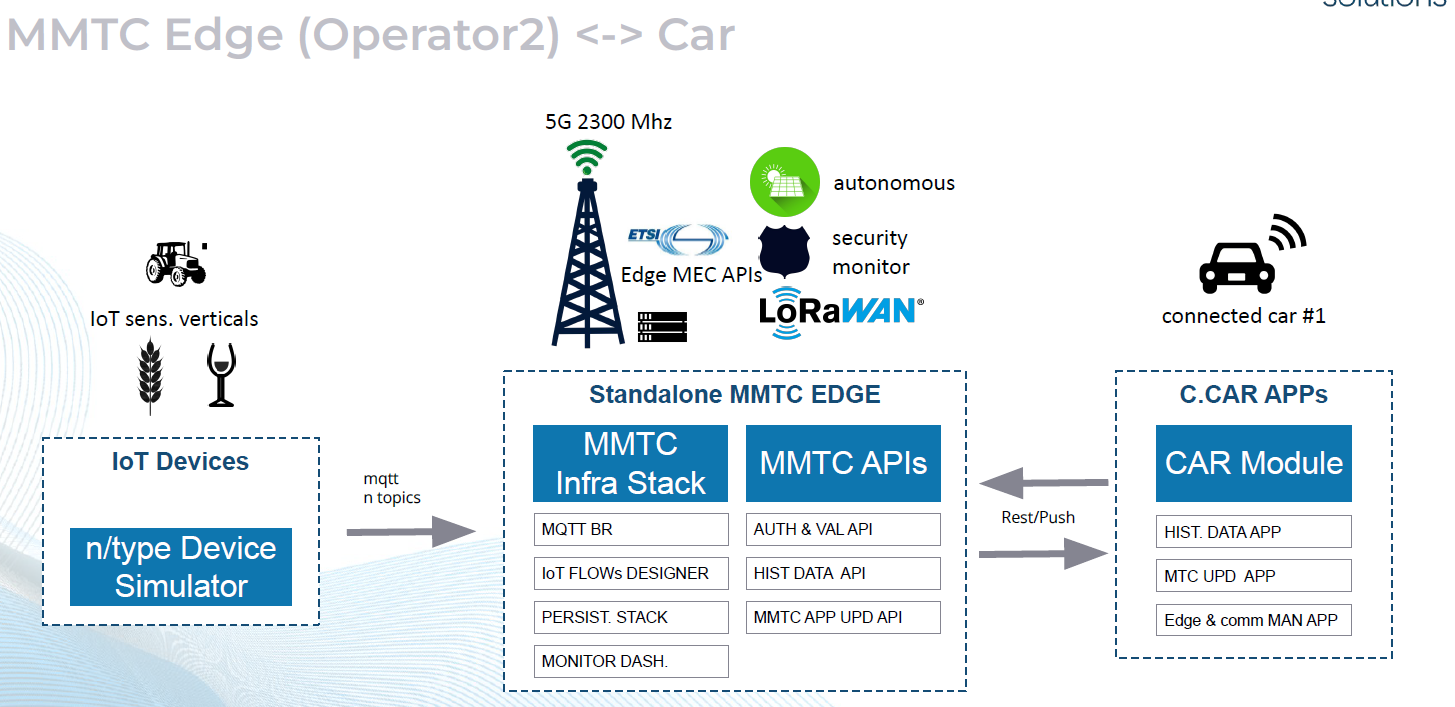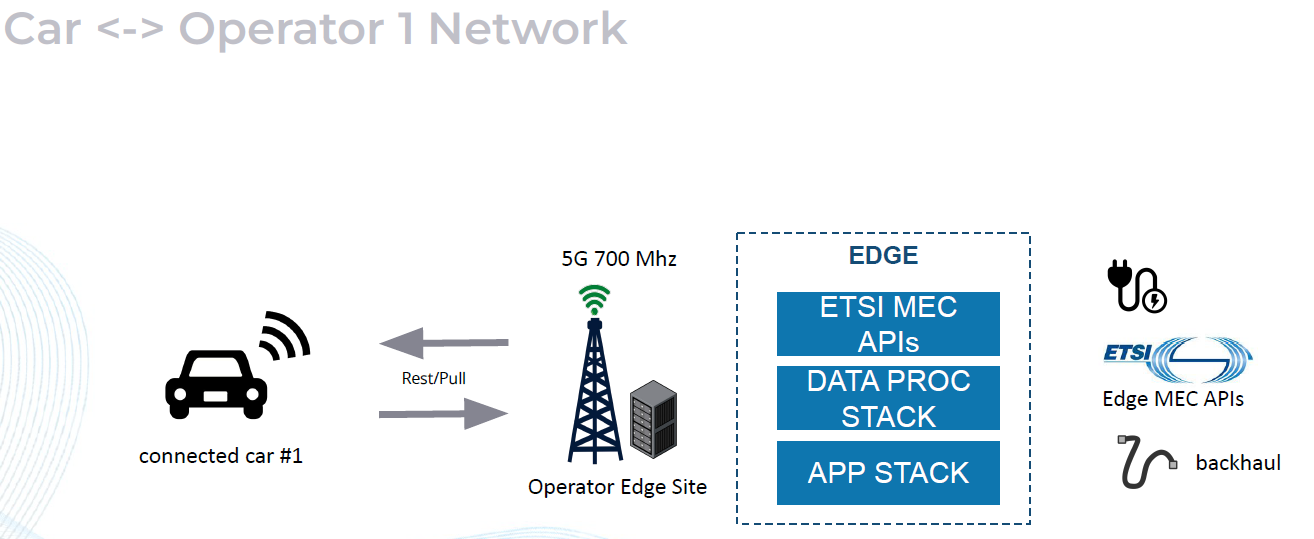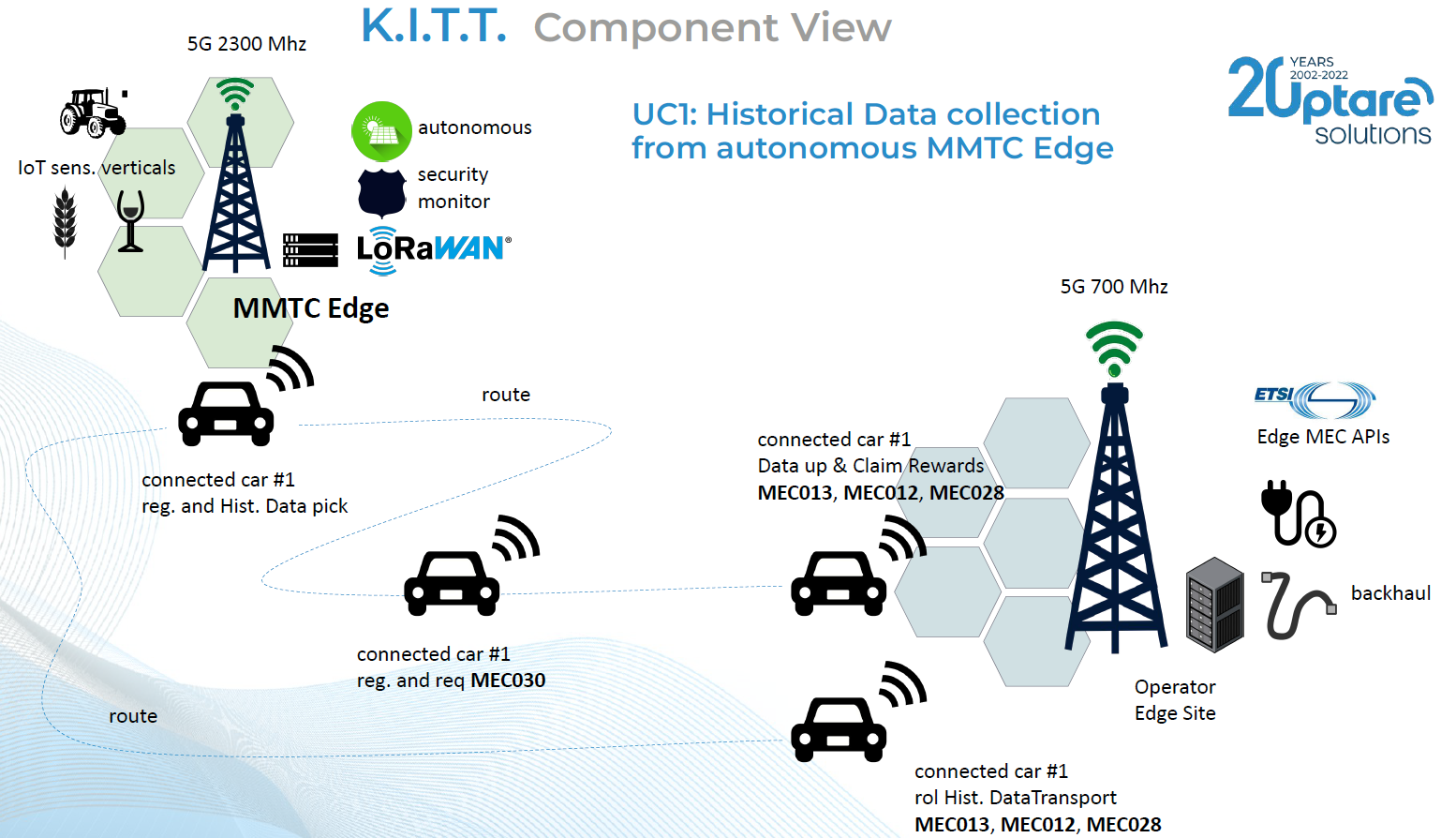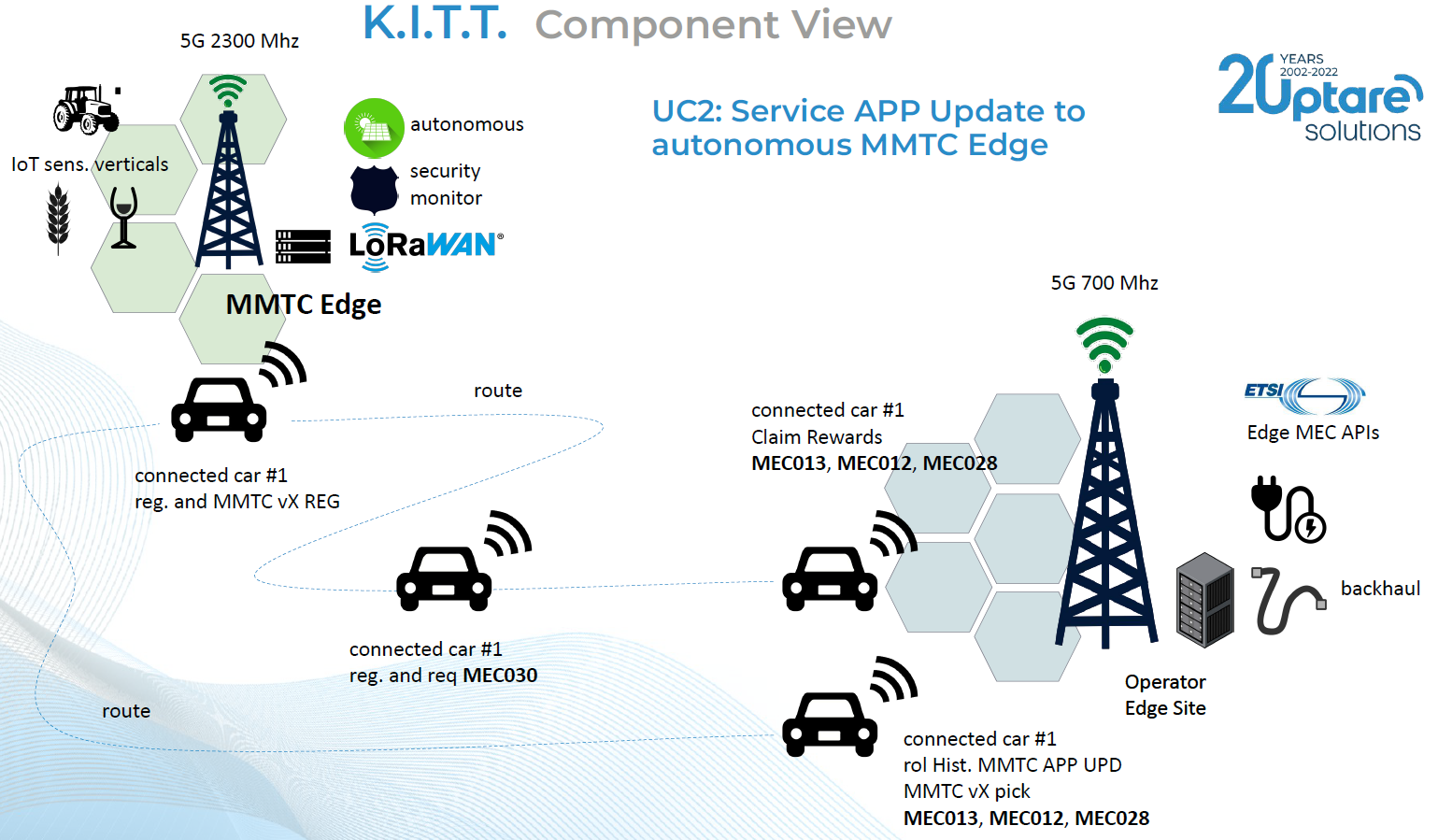Hack2022 3rd Prize: Difference between revisions
No edit summary |
No edit summary |
||
| Line 76: | Line 76: | ||
|- | |- | ||
|'''Innovation''' | |'''Innovation''' | ||
| | |[[File:hack2022-optare-outcome2.png|60px|center|class=img-responsive]] | ||
|Digital divide of 5g end edge in some areas because its complexity and the | |Digital divide of 5g end edge in some areas because its complexity and the | ||
| Line 84: | Line 84: | ||
|- | |- | ||
|'''Use-Case / Solution Credibility''' | |'''Use-Case / Solution Credibility''' | ||
| | ||[[File:hack2022-optare-outcome2.png|60px|center|class=img-responsive]] | ||
|Create a platform with capability for sending and receive data using the | |Create a platform with capability for sending and receive data using the | ||
| Line 92: | Line 92: | ||
|- | |- | ||
|'''Use of ETSI MEC Services''' | |'''Use of ETSI MEC Services''' | ||
| | ||[[File:hack2022-optare-outcome2.png|60px|center|class=img-responsive]] | ||
|MEC013 for location information, MEC012 for radio network information, | |MEC013 for location information, MEC012 for radio network information, | ||
| Line 102: | Line 102: | ||
|- | |- | ||
|'''Use of LF Edge Akraino Blueprints''' | |'''Use of LF Edge Akraino Blueprints''' | ||
| | ||[[File:hack2022-optare-outcome2.png|60px|center|class=img-responsive]] | ||
|Checked the Elliot Manager and Nodes. Needs a continuum connectivity | |Checked the Elliot Manager and Nodes. Needs a continuum connectivity | ||
| Line 112: | Line 112: | ||
|- | |- | ||
|'''Deliverable''' | |'''Deliverable''' | ||
| | ||[[File:hack2022-optare-outcome2.png|60px|center|class=img-responsive]] | ||
|Developed all the sw components running in a demo environment. Designed | |Developed all the sw components running in a demo environment. Designed | ||
Revision as of 10:35, 23 November 2022
3rd Prize Award & Automotive special prize
K.I.T.T Knowledge in the traffic
Team
Team Pedraforca from Optare Solutions
- Xose Ramon Sousa Vazquez
- Santiago Rodriguez Garcia
- Fernando Lamela Nieto
Introduction
- A connected vehicle (car) that with the support of 5G, MEC and artificial intelligence technologies is able to capture information from the surrounding environment and feed a smart city platform with this information which can predict and adopt several actions for the good of people.
- The information retrieved by the car and sent to the platform is collected by three different ways:
- camera: the car is equipped with a camera that sends a video stream to the edge over which is executed an AI inference algorithm to detect several patterns and generate information packages relevant to the smart city platform
- sensors: the car is equipped with several sensors (temperature, humidity, …) that can create heat maps with this information to the smart city
- the smart city itself. In regions/areas where the city information sources are isolated (low power, low signal quality, bad coverage due maintenance, weather conditions, etc), the car can act like a link between the information source and the smart city platform, uploading this information in the next available coverage area crossed by the car in its route.
- Every information contribution to the smart city could be rewarded with points that can be exchanged with tax discounts, for example, guaranteeing the participation of the people establishing missions with a different degree of value. Every connected car can register on the smart city platform and provide several information about the city and people.
Architecture
Component view
Conclusion
| Innovation | Digital divide of 5g end edge in some areas because its complexity and the
cost to bring. The mobile backhaul via vehicular net could help on that proposing a network and computation for agriculture and remote industries | |
| Use-Case / Solution Credibility | Create a platform with capability for sending and receive data using the
different edge covered areas and using cheap and autonomous equipment for a quick deployment. Integrated demo is created for hackathon | |
| Use of ETSI MEC Services | MEC013 for location information, MEC012 for radio network information,
MEC021 for mobility and depending on the availability of more than one sandbox mep, MEC030 related with V2X and the automotive blueprint MEC011 for application registration, mec service discovery | |
| Use of LF Edge Akraino Blueprints | Checked the Elliot Manager and Nodes. Needs a continuum connectivity
among the components and this is not possible in this architecture. Follow some APIs for upload new app images. Tested MEC-based Stable Topology Prediction for Vehicular Networks but similar and more evolved with MEC030 | |
| Deliverable | Developed all the sw components running in a demo environment. Designed
the autonomous antenna (Spanish self delivery frequency and edge platform). Tested with a wifi connection and a static 5G antenna |
